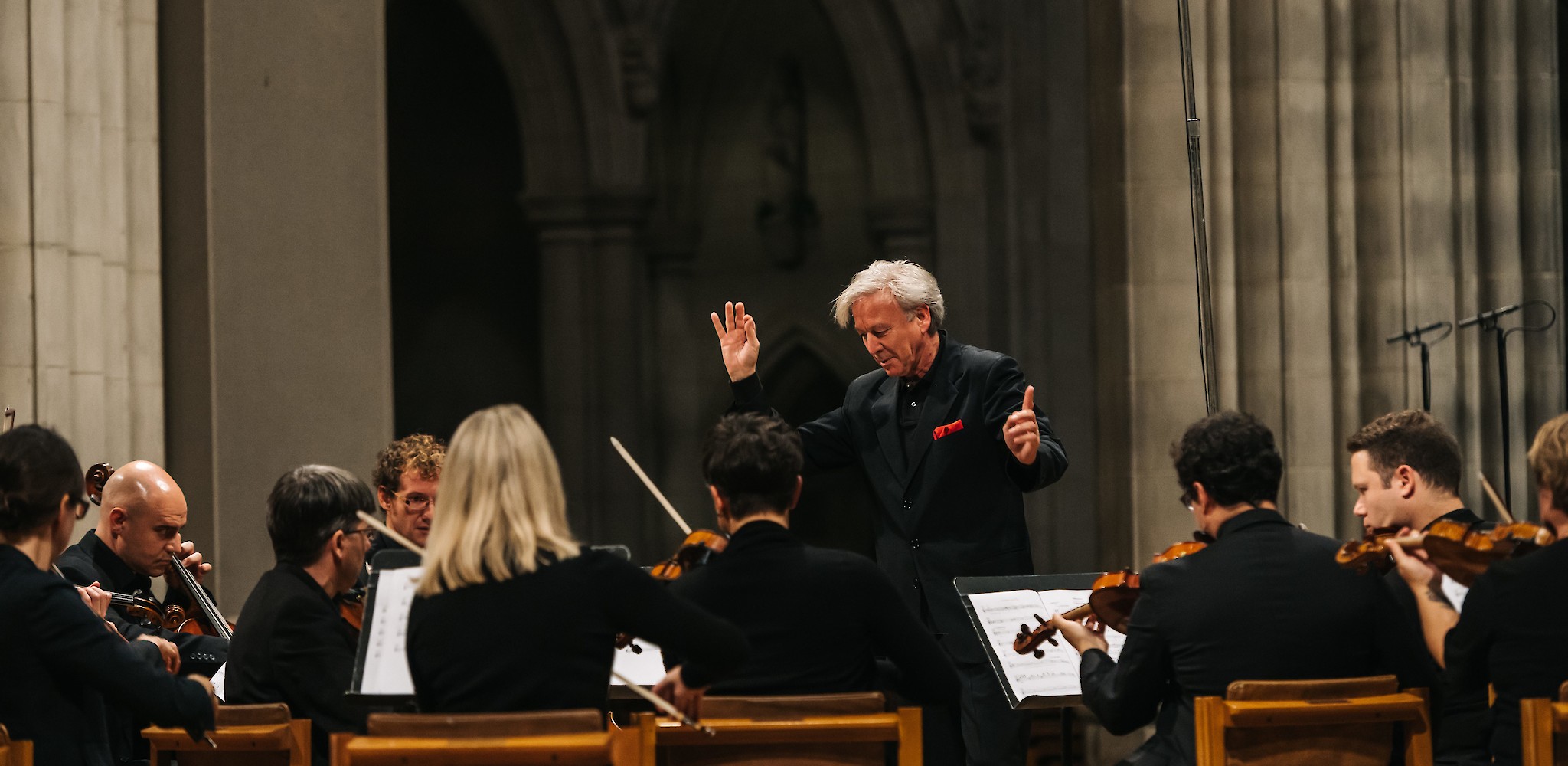More than Music
At a moment when America’s performing arts institutions are challenged not merely to continue to function, but to function in new ways, PostClassical Ensemble undertakes a series of audio/video webcasts exploring the role of music in society.
PostClassical Ensemble’s programming typically focuses on music as an instrument for mutual understanding and human betterment. Its library of two-hour WWFM webcasts, hosted by Bill McGlaughlin, is the starting point in this new venture, in which PCE is partnered by the filmmaker Behrouz Jamali and the enterprising journal of politics, government, and culture The American Interest.
Aaron Copland — American Populist
This film is a singular consideration of Aaron Copland’s odyssey as the most famous American composer of his generation – in particular, his immersion in the political left in the 1930s, and his “Red scare” ordeal of the 1950s.
The film includes Copland’s recollections of addressing a Communist picnic in Minnesota, and a re-enactment of his 1953 interrogation by Senator Joseph McCarthy and Roy Cohn (with Edward Gero playing McCarthy). PCE’s DVD of The City (1939), with Copland’s most remarkable film score newly recorded by PostClassical Ensemble conducted by Angel Gil-Ordonez with narrator Francis Guinan, is centrally featured. Historians Michael Kazin and Joseph McCartin consider Copland’s fate in the larger context of American populism – a volatile factor that seemingly looms ever larger in our national experience.
Read Joseph Horowitz’s related blog post, Bernard Herrmann’s “Whitman” — A Subversive Yet Inspirational Entertainment for Today.
Beyond Psycho – The Musical Genius of Bernard Herrmann
Everyone knows Bernard Herrmann as a supreme composer for film – but he was much more than that. PostClassical Ensemble’s documentary observes Herrmann “in the round.” Sampling a new PCE Naxos CD, it explores the classic 1944 radio drama Whitman, written by Norman Corwin with music by Herrmann. The other works here are Herrmann’s Clarinet Quintet and Psycho Narrative (not to be confused with the better-known, but inferior, Psycho Suite).
Read Joseph Horowitz’s related blog post, Aaron Copland: “One Red to Another.”
Redes Lives!
With a galvanizing score by Silvestre Revueltas and poetic cinematography by Paul Strand, Redes (1936) features some of the most memorable sequences in the history of cinema of great music wedded to the moving image. It’s also a high exemplar of political art.
Read Joseph Horowitz’s related blog post, The Artist and the State: Mexico and “Engineers of the Soul.”
The Plow that Broke the Plains and The River
This PostClassical Ensemble film, created by Behrouz Jamali, explores two classic American documentary films: The Plow that Broke the Plains (1936) and The River (1938). The musical soundtracks, by Virgil Thomson, are iconic Americana. Our film uses clips from our Naxos DVD, in which the musical scores are newly recorded by PCE conducted by Angel Gil-Ordóñez.
Read Joseph Horowitz’s related blog post, The New Deal, the Arts, and Race.
Shostakovich in Time of War
Read Joseph Horowitz’s related blog post, Music in Wartime.

